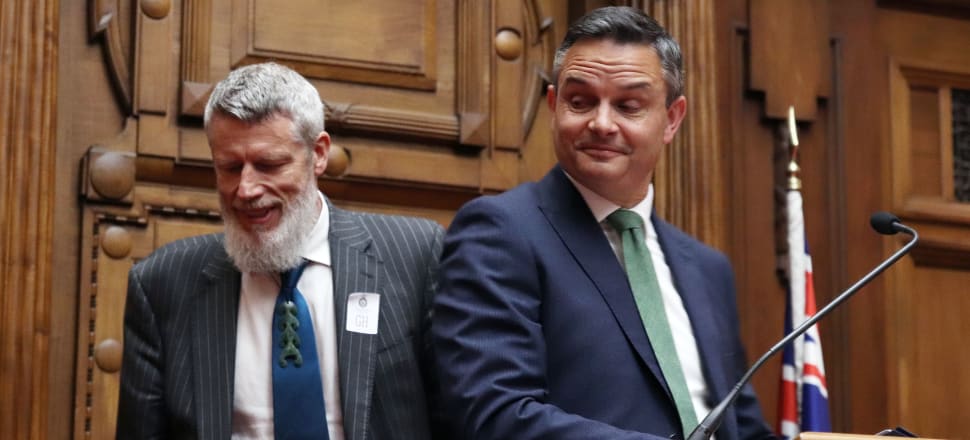
The Government unexpectedly announced on Tuesday evening it would follow the Climate Change Commission's advice on the country's carbon market, Marc Daalder reports
Analysis: The Government has finally backed down on its spat with the Climate Change Commission over proper settings in New Zealand's carbon market, after an escalating war of words and a legal battle.
Last year, the commission provided its first batch of advice on the Emissions Trading Scheme (ETS), required each year under the Zero Carbon Act, proposing major changes.
These would curtail the number of units auctioned into the scheme in an effort to draw down a stockpile of units already held by polluters, which were obtained when the price of carbon was low. They would also increase the floor on the carbon price substantially and drastically increase a soft price ceiling, to better allow the market to find the right price to cut emissions.
In December, Cabinet rejected both the commission's advice and that of Climate Change Minister James Shaw, who had advocated the recommendations be adopted. The concern at the time was the impact of a rising carbon price on the cost of living.
READ MORE: * Court orders Shaw to reconsider ETS settings * 'Decisions have consequences' - Climate Commission scolds Govt * Cabinet overrides Shaw and commission on carbon price
The commission hit back in April in its second annual batch of advice, with chair Rod Carr telling Newsroom that "decisions have consequences". In this case, the consequences were major disruption to the market – the price of carbon plummeted as investors lost confidence in the Government's climate response – and the commission broadly reiterating its advice.
"Weakening decisions on NZ ETS settings and climate policy in general during times of adverse economic conditions, which climate change is only likely to exacerbate, is not sustainable in the long run and will greatly compromise our chance of meeting the climate change targets set out in the act," Carr wrote in the report.
At the time, climate policy expert Christina Hood said the harsh language in the report was the most critical the commission had yet been of the Government.
"This is much clearer and stronger than anything we’ve seen the commission come out with before. It’s a real shot across the bows," she said.
"They obviously think that the Government has made a mistake and are not pulling any punches in saying so."
Then in May, a group of climate-concerned lawyers took the Government to court over its ETS decision. On July 13, the High Court issued a judgment ordering Shaw to reconsider the settings, after he admitted the proper process wasn't followed.
While the Government had until September 30 to provide a new decision and the court left open the possibility of following the proper process but arriving at the same result as in December, Cabinet has instead waved the white flag.
On Tuesday evening, less than two weeks after the court ruling, Shaw announced Cabinet had made a decision to almost entirely align with the commission's advice going forward.
"Today is an important step forward in helping us to meet our domestic and international climate targets. The new settings put us in lock step with advice provided by the Climate Change Commission in 2022 and 2023," he said. Cost-of-living impacts were expected to be minimal – a $10 rise in the price of carbon would only add $1.67 to the average household's weekly budget.
The Government has adopted price controls that almost exactly mirror the commission's April advice. That includes nearly doubling the price floor from December, to a level nearly $10 above where carbon was trading on Tuesday afternoon. It also significantly increases the soft price ceiling, called the cost containment reserve, which will be broken into two tiers to better allow price discovery.
The number of units available for auction has also been reduced in line with the commission's recommendations. The only thing missing was a recommended "discrepancy adjustment" to account for the extra units auctioned this year, under the settings that didn't follow the commission's advice. A minor tweak was also made to account for updated industrial free allocation forecasts.
By embracing the commission's advice, Cabinet has gone some way to restoring the bruised legitimacy of the independent entity.
Shaw has repeatedly, publicly worried that the commission's influence would be weakened if the Government's made a habit of ignoring it. In December, he said Cabinet's decision could set a precedent. In April, he said the back and forth between the commission and ministers highlighted the case for granting full control of ETS settings to the commission.
"There is always a risk of that. And that was a risk that we discussed when we did the original [Zero Carbon Act] legislation and punted for a political decision-making process," he said. He had wanted the commission to set ETS unit limits and price controls directly, like the Reserve Bank sets interest rates, but was blocked by New Zealand First. Empowering the commission to do this is now one of the Green Party's manifesto climate policies.
While Cabinet hasn't gone that far, it did completely u-turn on its decision from last year. While Labour ministers have largely dismissed criticism of that decision in recent months, their sign-off was needed to make the change.
As Labour stares down the barrel of an extremely tight election campaign, with polls close but currently leaning towards a change of government, perhaps it felt it important to undo the precedent that the commission could be ignored willy-nilly.
Whatever the reason, the victory for the Climate Change Commission here isn't just on the substance of the ETS – it's also a symbolic and political victory that shores up the importance of the Zero Carbon Act.







